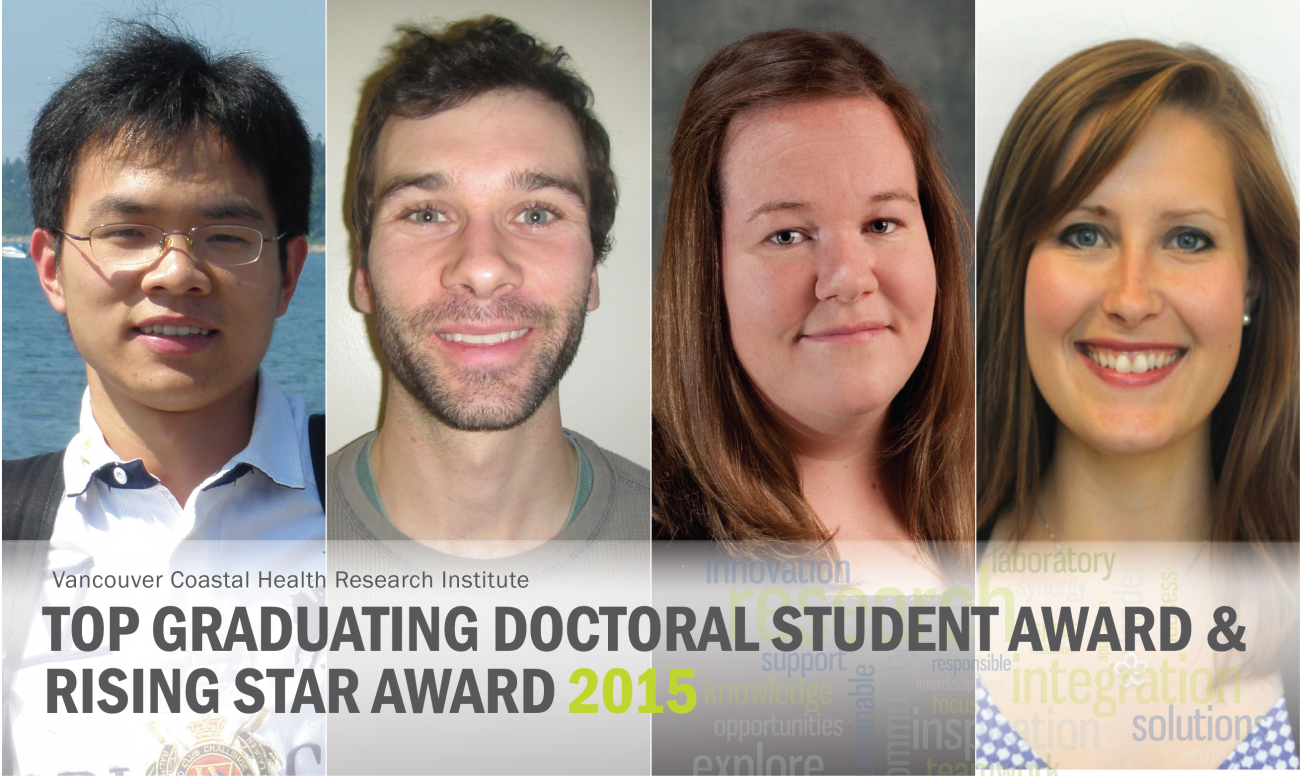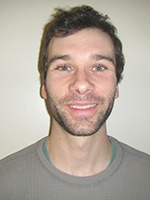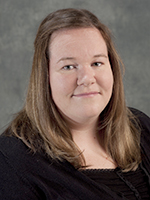
Congratulations to this year’s Top Graduating Doctoral Student and Rising Star Award Recipients.
Vancouver Coastal Health Research Institute (VCHRI) is proud to name the recipients of the 2015 Top Graduating Doctoral Student Awards and the Rising Star Awards. The awards recognize outstanding VCHRI research trainee role models who demonstrate research excellence, foster research understanding through communication, and contribute to the VCHRI research environment in a meaningful way.
The 2015 Top Graduating Doctoral Student Award recipients are:
The 2015 Rising Star Award recipients are:
The awards will help fund the trainees’ travel to international conferences where they will present their research findings to peers and leaders in their field. Conference participation is critical to the development of a research career, and we are proud to support them in this endeavor. Congratulations to the 2015 recipients!
What if we could treat the cause of Parkinson’s disease, and not just the symptoms?

Wu Yang (Jack) Jin is conducting research that could overcome one of the biggest hurdles to treating the cause of Parkinson’s disease (PD), and not just the symptoms. Currently, PD treatments such as deep brain stimulation and medications are only symptom-relieving, don’t address the cause, and often bring complications and side effects. But Jack’s novel “targeting-peptide”-based method finds a way to overcome the blood brain barrier and use genetic manipulations to protect dopaminergic neurons from parkinsonian MPP+/MPTP-induced cell death both in vitro and in vivo.
“The competition of new drug development in the neuroscience field is so fierce that young scientists who want to make exciting discoveries have to work extraordinarily hard and be self-motivated,” says Jack when asked about what keeps him motivated. “As a passionate PhD student, I can always start my work on the lab bench on time every morning, rain or shine.”
What if we could help people with nervous system injuries re-learn motor skills more quickly?

Cameron Mang’s research is focused on finding effective ways to maximize neuroplasticity, the capacity of the nervous system to adapt in response to experience, in rehabilitation strategies. He has found that even a single bout of aerobic exercise can have meaningful impact on neuroplasticity and rehabilitation. Cameron feels that this is due to increased brain-derived neurotrophic factor (BDNF) levels, a key in increasing neuroplasticity, and is now conducting (Epi)genetic analyses. This research could lead to new aerobic exercise strategies to help motor rehabilitation.
Cameron cites his father, a physical therapist who has helped bring countless people back to good health, and his labmates as his motivators. “We have an amazing group of students and post-doctoral fellows in the Brain Behavior Laboratory that make for an amazingly productive and fun workplace,” he says. “There is nothing better than getting together at the whiteboard to understand recent findings or map out a new experiment.”

Peggy Assinck brings sharp scientific acumen, advanced leadership skills, and dedication to public outreach to her research into spinal cord injury (SCI) where her work is bringing new understanding of how cell transplantation can affect functional recovery in SCI. At the International Collaboration for Research Discoveries (ICORD), she assists researchers and mentors new trainees in a wide variety of investigations in addition to conducting her own research. As an accomplished Paralympic athlete with personal SCI experience, Peggy is an ambassador who brings SCI research awareness to the public through events, presentations, and networking events.
“It can be hard to keep current with regards to ongoing research in SCI, but attending regular journal clubs and reading when possible helps me feel like I am keeping on top of things,” Peggy says. “Ultimately, I hope that some aspect of my work can positively impact the spinal cord injury community in the years to come.”

Kaarina Kowalec plays an integral role in multiple sclerosis (MS) research and fundraising in B.C., however, it is her leadership and team-building skills that get her noticed among her peers. She exemplifies exceptional independence, organization, and critical thinking skills, which she applies to move teams toward a common goal. This can be seen in her PhD project, which involves collaborating with the Canadian Pharmacogenomics Network for Drug Safety (CPNDS) and requires a multi-disciplinary group of researchers to work across multiple sites.
Kaarina makes it a priority to keep up with the current research in her field and outside of it by designating a few hours every week to perform literature reviews, as if it were a “meeting”. “I apply this principle to many other aspects of my research, including assigning a certain amount of time each week to write manuscripts (and my thesis!), as well as reading other, non-scientific, pieces to broaden my scope and knowledge,” she says.

In a field of exceptional students, Mali Meibod has risen to the top, consistently ranking as first or second in her classes, and earning numerous scholarships. Her work ethic, intellect and powerful insights drive her research, developing a new generation of wound dressings with anti-scarring properties that provide new hope to patients with burns, surgical scarring or skin trauma. Mali has a natural ability to bring insights from bench to bedside. She builds bridges between academia and industry, allowing cutting-edge research to become patient therapies.
“I don't have a single role model,” Mali says. “Life is too dynamic to look up to just one particular person. Instead, I find the best thing in each person I work with.” Mali has a no-nonsense approach to keeping motivated. “I live with a simple rule in my life: things that need to be done should be done as soon as possible, in the best way possible, using the most efficient approach. No procrastination!”


